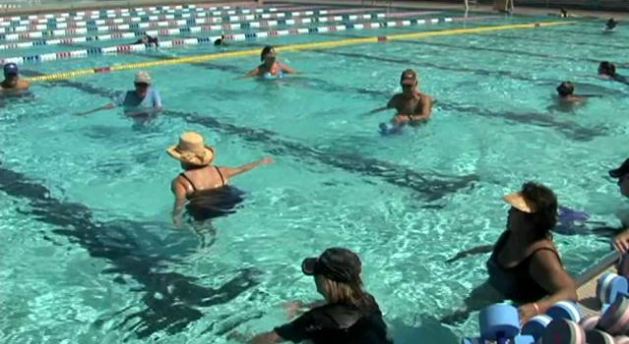Reposted from West Hawaii Today
by Erin Miller
Hawaii’s largest health insurance provider is teaming up with a bestselling author to help communities here get healthier.
Hawaii Medical Service Agency joined National Geographic Fellow Dan Buettner, whose book, “The Blue Zones,” has created a template for communities to follow that leads people to more active lifestyles, making better food choices, spending more time in social pursuits and creating more walkable communities. The book inspired The Blue Zone Project, which has been initiated in 13 communities across the country.
Hawaii is a natural fit for the project, Buettner said Tuesday during a visit to Hawaii Island with HMSA President and CEO Mike Gold.
- See more at: http://westhawaiitoday.com/news/local-news/hmsa-bringing-blue-zones-hawaii#sthash.jNL6tsrI.dpufHawaii’s largest health insurance provider is teaming up with a bestselling author to help communities here get healthier.
Hawaii Medical Service Agency joined National Geographic Fellow Dan Buettner, whose book, “The Blue Zones,” has created a template for communities to follow that leads people to more active lifestyles, making better food choices, spending more time in social pursuits and creating more walkable communities. The book inspired The Blue Zone Project, which has been initiated in 13 communities across the country.
Hawaii is a natural fit for the project, Buettner said Tuesday during a visit to Hawaii Island with HMSA President and CEO Mike Gold.
- See more at: http://westhawaiitoday.com/news/local-news/hmsa-bringing-blue-zones-hawaii#sthash.jNL6tsrI.dpufHawaii’s largest health insurance provider is teaming up with a bestselling author to help communities here get healthier.
Hawaii Medical Service Agency joined National Geographic Fellow Dan Buettner, whose book, “The Blue Zones,” has created a template for communities to follow that leads people to more active lifestyles, making better food choices, spending more time in social pursuits and creating more walkable communities. The book inspired The Blue Zone Project, which has been initiated in 13 communities across the country.
Hawaii is a natural fit for the project, Buettner said Tuesday during a visit to Hawaii Island with HMSA President and CEO Mike Gold.
- See more at: http://westhawaiitoday.com/news/local-news/hmsa-bringing-blue-zones-hawaii#sthash.jNL6tsrI.dpufHawaii’s largest health insurance provider is teaming up with a bestselling author to help communities here get healthier.
Hawaii Medical Service Agency joined National Geographic Fellow Dan Buettner, whose book, “The Blue Zones,” has created a template for communities to follow that leads people to more active lifestyles, making better food choices, spending more time in social pursuits and creating more walkable communities. The book inspired The Blue Zone Project, which has been initiated in 13 communities across the country.
Hawaii is a natural fit for the project, Buettner said Tuesday during a visit to Hawaii Island with HMSA President and CEO Mike Gold.
- See more at: http://westhawaiitoday.com/news/local-news/hmsa-bringing-blue-zones-hawaii#sthash.jNL6tsrI.dpufHawaii’s largest health insurance provider is teaming up with a bestselling author to help communities here get healthier.
Hawaii Medical Service Agency joined National Geographic Fellow Dan Buettner, whose book, “The Blue Zones,” has created a template for communities to follow that leads people to more active lifestyles, making better food choices, spending more time in social pursuits and creating more walkable communities. The book inspired The Blue Zone Project, which has been initiated in 13 communities across the country.
Hawaii is a natural fit for the project, Buettner said Tuesday during a visit to Hawaii Island with HMSA President and CEO Mike Gold.
- See more at: http://westhawaiitoday.com/news/local-news/hmsa-bringing-blue-zones-hawaii#sthash.jNL6tsrI.dpufTo make it even easier, you’re supposed to take on just the changes that you’re comfortable with. “The thing to realize is the Power 9 is an à la carte menu,” says Dan Buettner, the National Geographic explorer and author who helped identify the Power 9. “These are all things that not only the longest-living people do, but are also evidence based.”
Buettner discovered the nine commonalities after leading teams to places like Okinawa, Japan, and Loma Linda, Calif., that were known for having large numbers of people who lived to be 100 years old or older (also known as centenarians). What’s more incredible is these centenarians are active – they still work, eat well, and are an integral part of life in their communities.
Buettner and his teams dubbed these places Blue Zones® and he wrote about them in his book, The Blue Zones: Lessons for Living Longer from the People Who’ve Lived the Longest.
“There’s a cultural template that’s very easy to press into action,” Buettner said. “The concepts will resonate with how (Hawaii residents) grew up.”
The Blue Zones refers to geographic areas where people live longer than average lives. Okinawa, a region of Japan with strong ties to Hawaii, is one of those zones, Buettner said.
HMSA is offering to help select communities in Hawaii to be designated as Blue Zones. The process involves an application, an evaluation of the community, which typically needs to be somewhere with a critical mass of restaurants, workplaces, grocery stores, schools and the ability to set food policy, and then selection. Following the selection, a team hosts open community meetings in which 20 to 30 concepts that work in other communities that have successfully adopted the Blue Zone project are presented. Each community is asked to select 10 or so concepts to try to introduce in their area.
The goal isn’t to force the program on anyone, though, Buettner said.
“Our experience is that it’s best to take on the community most ready and show it works,” he said. “For every city we say yes to, we say no to four.”
For example, in the area of food policy, Buettner’s approach is to first ask people what works in their community. Then he asks what isn’t working so well. People will often own up to unhealthy food choices.






